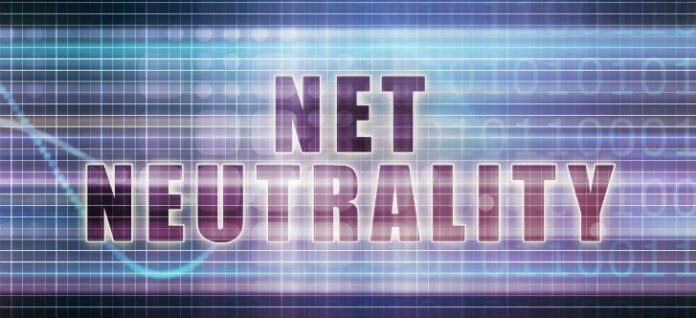Today marks the end of the road for Title II regulations, aka net neutrality, as the Federal Communications Commission’s repeal of the rules takes effect. A congressional effort to revive the rules, under which internet service providers were required to provide equal access to all content without throttling, blocking or offering paid priority based on the service or content, passed the Senate but has not been taken up by the House, so the repeal proceeds — although there are still state attorneys general fighting the repeal in the courts as well as some states putting their own net neutrality rules in place. Even if the reinstatement of net neutrality were to pass the House, which is viewed as unlikely, it is even more unlikely that President Donald Trump would sign such legislation. The FCC’s repeal also prevented similar rules from being passed in the future.
The FCC released a statement standing by its repeal and emphasizing that the “internet wasn’t broken” in 2015 when the rules were passed, framing the repeal as a return to the “light-touch approach” that was in place as the Internet first formed and grew, with some enhanced rules on disclosure requirements for service providers — so if customers’ terms of service do change, it must be disclosed.
“This will discourage harmful practices and help regulators target any problematic conduct,” the FCC said, adding that scrutiny of ISP’s behavior, including anti-competitive behavior, will fall under the purview of the Federal Trade Commission. “The Federal Trade Commission will police and take action against Internet service providers for anticompetitive acts or unfair and deceptive practices,” the FCC said.
Here’s how the @FCC’s new market-based regulation of the Internet will protect consumers, promote innovation, and encourage better, faster, cheaper Internet access. @CNET: https://t.co/uXX9K3beqe
— Ajit Pai (@AjitPai) June 11, 2018
“Both at the FCC, we have a transparency rule where every company in the U.S. has to disclose their business practices, and the Federal Trade Commission is empowered to take action against any company who engages in any anti-competitive conducts,” @AjitPaiFCC says pic.twitter.com/LSk0Dh5myZ
— CBS News (@CBSNews) June 11, 2018
Advocates of net neutrality were not reassured, and many vowed to keep pressing forward with efforts to reinstate the rules.
Today @FCC #NetNeutrality rules expire.
But here’s what doesn’t: the effort to keep the internet open for all. Because the fight continues. In Congress. In courthouses. In state houses. In city halls. We won’t stop fighting until #NetNeutrality is once again the law of the land.
— Jessica Rosenworcel (@JRosenworcel) June 11, 2018
As of today, #NetNeutrality is dead.
I’ve filed suit to protect an open Internet and will continue the fight. We need an an internet where we can watch, read, and share freely.
— AG Josh Shapiro (@PAAttorneyGen) June 11, 2018
Meanwhile, there have been a few calls for new legislation — including by carriers such as AT&T — that would put some type of consensus rules in place on treating internet content equally without necessarily treating ISPs as telecommunications service providers.
“The Chicken Littles claiming ‘the end of the Internet’ will now be proved wrong,” said Doug Brake, director of broadband and spectrum policy at the Information Technology and Innovation Foundation, a tech think tank which recently put together a report on possible compromise legislation. “However, there is still much to be done to achieve a stable, lasting legal framework that gives everyone in the Internet ecosystem confidence to invest in and use this crucial technology. Now is the time for policymakers to work toward bipartisan compromise legislation that will stand the test of time.”

